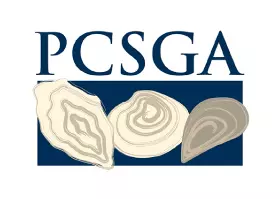PCSGA members place a high priority on scientific research into the benefits and impacts of shellfish aquaculture. Because shellfish require clean water in order to grow, our members support continuing research to better understand the natural dynamics of shellfish farming.
Science has confirmed that shellfish actually improve the water quality and tidal habitat where they grow. For example, scientists at the Woods Hole Oceanographic Institution report that, “shellfish are by far the most cost-effective strategy to control pollution.” In addition, researchers have found a greater diversity and richness of species in sea beds with shellfish farming gear than in bare seabed or seabed habitat with eelgrass.
In the Pacific Northwest, The Pacific Shellfish Institute (PSI) is a private non-profit research and technical assistance organization. Established in 1995, the mission of PSI is to conduct research on shellfish and disseminate scientific and technical information to growers, regulators and others in the research community. PSI’s research and technical assistance includes various aspects of shellfish culture including shellfish farming interactions in the marine environment, water quality, and shellfish diseases and pests. To learn more about the Pacific Shellfish Institute, visit www.pacshell.org
To see the current research on Geoduck Aquaculture visit the Washington Sea Grant website. http://www.wsg.washington.edu/research/geoduck/index.html
Seasonal effects of clams (Panopea generosa) on eelgrass (Zostera marina) density but not recovery dynamics at an intertidal site Ruesink and Rowell, 2012.
Life history and morphological shifts in an intertidal seagrass following multiple disturbances Ruesink et al, 2012.
View a pdf of an Annotated Bibliography of the Environmental Effects of Shellfish Aquaculture.
